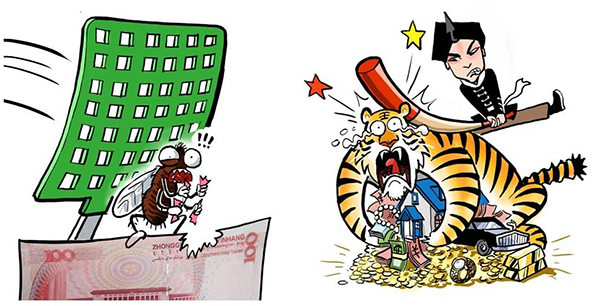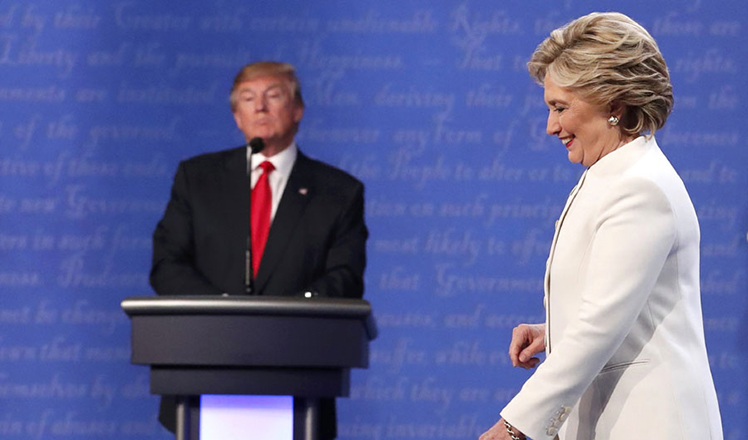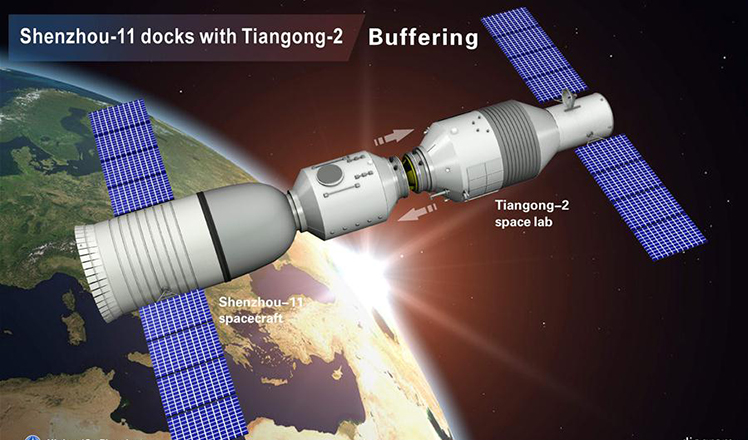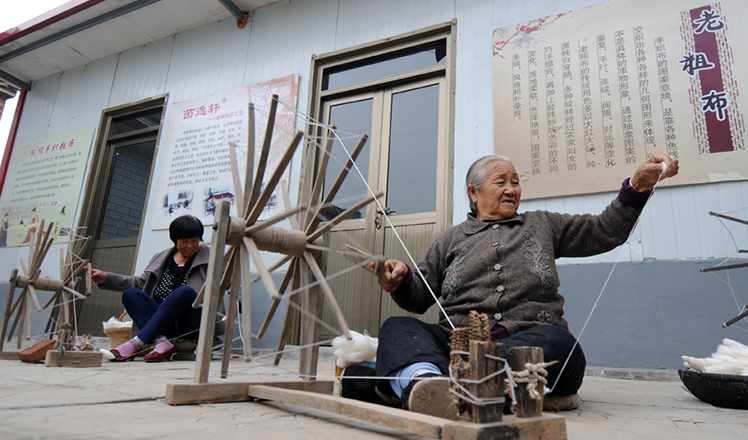Swatting flies essential for clean governance
Updated: 2016-10-21 07:58
By Song Wei(China Daily)
|
||||||||

The documentary The Corruption Fight Is Always Underway that began airing on China Central Television on Monday has attracted widespread attention. It displays the achievements the nationwide anti-corruption campaign has made since the 18th National Congress of the Communist Party of China in 2012.
It not only tells the stories of some so-called big tigers, corrupt high-ranking officials, but also those of some "flies", corrupt low-level officials, found guilty of some relatively minor discipline violations. For instance, in 2013, officials at Hainan Provincial Health School gave the faculty moon cake coupons paid for with public funds as gifts for Mid-Autumn Festival. They were duly punished.
Since the beginning of this year, tackling the corruption of the flies has become a focus of the anti-corruption work. As top leader Xi Jinping pointed out at the Sixth Plenary Session of the 18th CPC Central Commission for Discipline Inspection at the beginning of this year, people are more sensitive to the corruption of the ordinary Party members around them.
The minor instances of corruption that people encounter in their daily lives are a big issue, not only because they undermine the public's interests, but because they also undermine the public's confidence in the Party.
The anti-corruption campaign has already made remarkable achievements at the grassroots level, not only in targeting the corruption in poverty relief work but in all areas related to ordinary people's lives and interests.
These achievements in curbing the corruption of local officials have instilled public confidence in the effectiveness of the anti-corruption campaign. However, it should be noted that there are some anti-corruption activities that go too far and these too dam-age the image of the Party. There are two major reasons for this phenomenon. The first is that some local officials blur the difference between corruption and normal welfare. The second is the so-called welfare, such as allowances or benefits that local authorities and organizations once gave people. The local officials have failed to explain that they are no longer provided because they violated the Party's discipline.
From 2012, when the CPC Central Committee issued its eight-point code of conduct to cut bureaucracy and extravagance, so as to maintain close ties with the people, to the end of September this year, the CPC Central Commission for Discipline Inspection has dealt with more than 13,000 cases of local authorities violating the Party's discipline by offering allowances or benefits. All the reasons for these cases should be made clear to the public, as the real goal of the anti-corruption work is to protect the public's interests.
As the anti-corruption campaign continuously deepens at the grass-roots level, it faces more challenges than before. How to increase the efficiency of the anti-corruption work at the grassroots level, eliminate any misunderstandings people might have about it and guarantee the public's legal interests and welfare, is the key to the success of the next phase of anti-corruption efforts at the grass-roots level.
On the one hand, all kinds of corruption at the grassroots levels should be rooted out by reinforcing the anti-corruption efforts and actively involving the public in the anti-corruption campaign. There should be a zero tolerance attitude toward corruption and officials who violate the Party's discipline and national laws should be seriously dealt with in order to create a deterrent to the spread of corruption among local officials.
On the other hand, more attention needs to be given to the education and guidance of local officials, as well as the ordinary people, to help them understand the anti-corruption campaign and correct any misunderstandings they might have of anti-corruption work.
There's every reason to believe that pursuing the anti-corruption campaign at the grassroots level will help improve the Party's self-governance in an all-round way and so people will gain a sense of clean government and support for the anti-corruption campaign will further increase.
The author is deputy director of the Center for Anti-corruption Studies, University of Science and Technology of China.
- Former senior official in Shanxi stands trial for alleged corruption
- Ling Zhengce stands trial for corruption
- Ex-leader of Shanxi's capital gets life in prison for corruption
- Former Hebei Party chief charged with corruption
- Four former senior officials charged with bribery in action against corruption
- Corruption, extravagance strictly checked around China's festivals
- Spotlight shines on 'holiday corruption'
- Citizens going online to fight corruption
- Tianjin mayor suspected of corruption, faces probe

 Trump refuses to say he will accept election results
Trump refuses to say he will accept election results
 Top guns: Airshow China in past two decades
Top guns: Airshow China in past two decades
 Street photographer captures hustle-bustle of Beijing
Street photographer captures hustle-bustle of Beijing
 Five-time Olympic champion diver Chen Ruolin retires
Five-time Olympic champion diver Chen Ruolin retires
 Glimpse into lifestyle of astronauts in space
Glimpse into lifestyle of astronauts in space
 Shenzhou XI spacecraft docks with Tiangong-2 space lab
Shenzhou XI spacecraft docks with Tiangong-2 space lab
 Typhoon Sarika makes landfall in South China
Typhoon Sarika makes landfall in South China
 Handmade coarse cloth gets new shine
Handmade coarse cloth gets new shine
Most Viewed
Editor's Picks

|

|

|

|

|

|
Today's Top News
'Zero Hunger Run' held in Rome
Trump outlines anti-terror plan, proposing extreme vetting for immigrants
Phelps puts spotlight on cupping
US launches airstrikes against IS targets in Libya's Sirte
Ministry slams US-Korean THAAD deployment
Two police officers shot at protest in Dallas
Abe's blame game reveals his policies failing to get results
Ending wildlife trafficking must be policy priority in Asia
US Weekly

|

|







